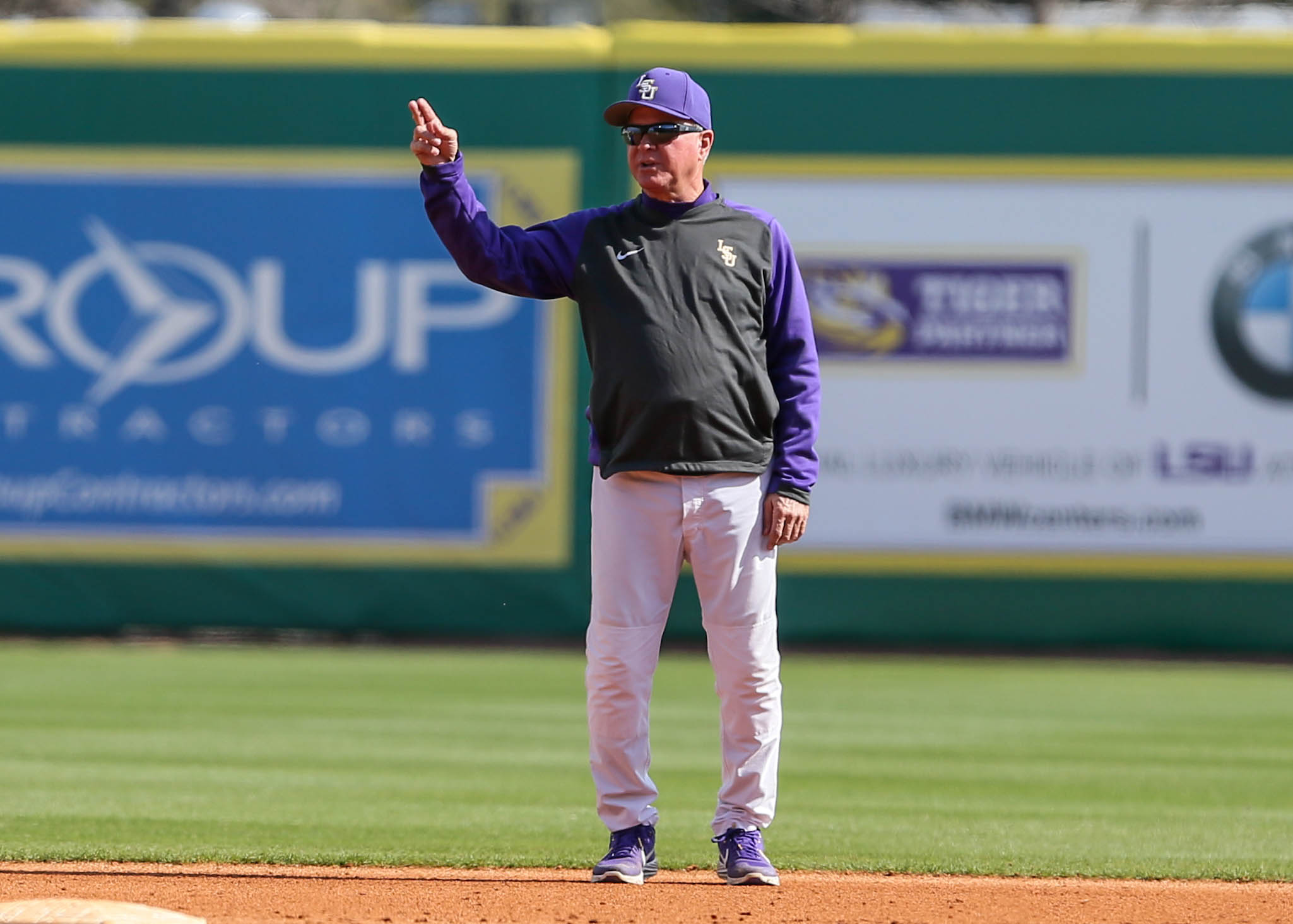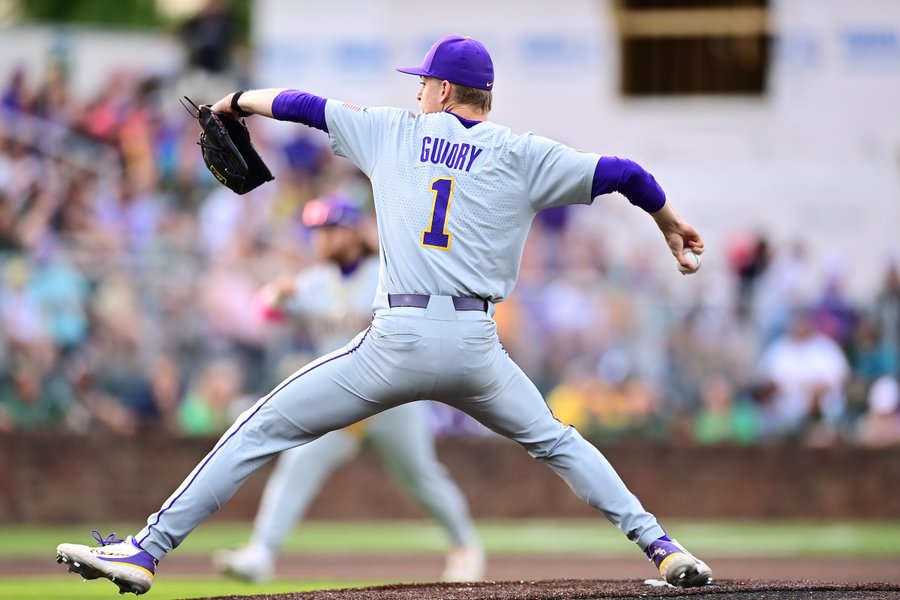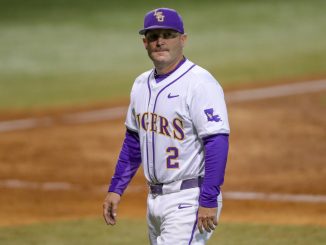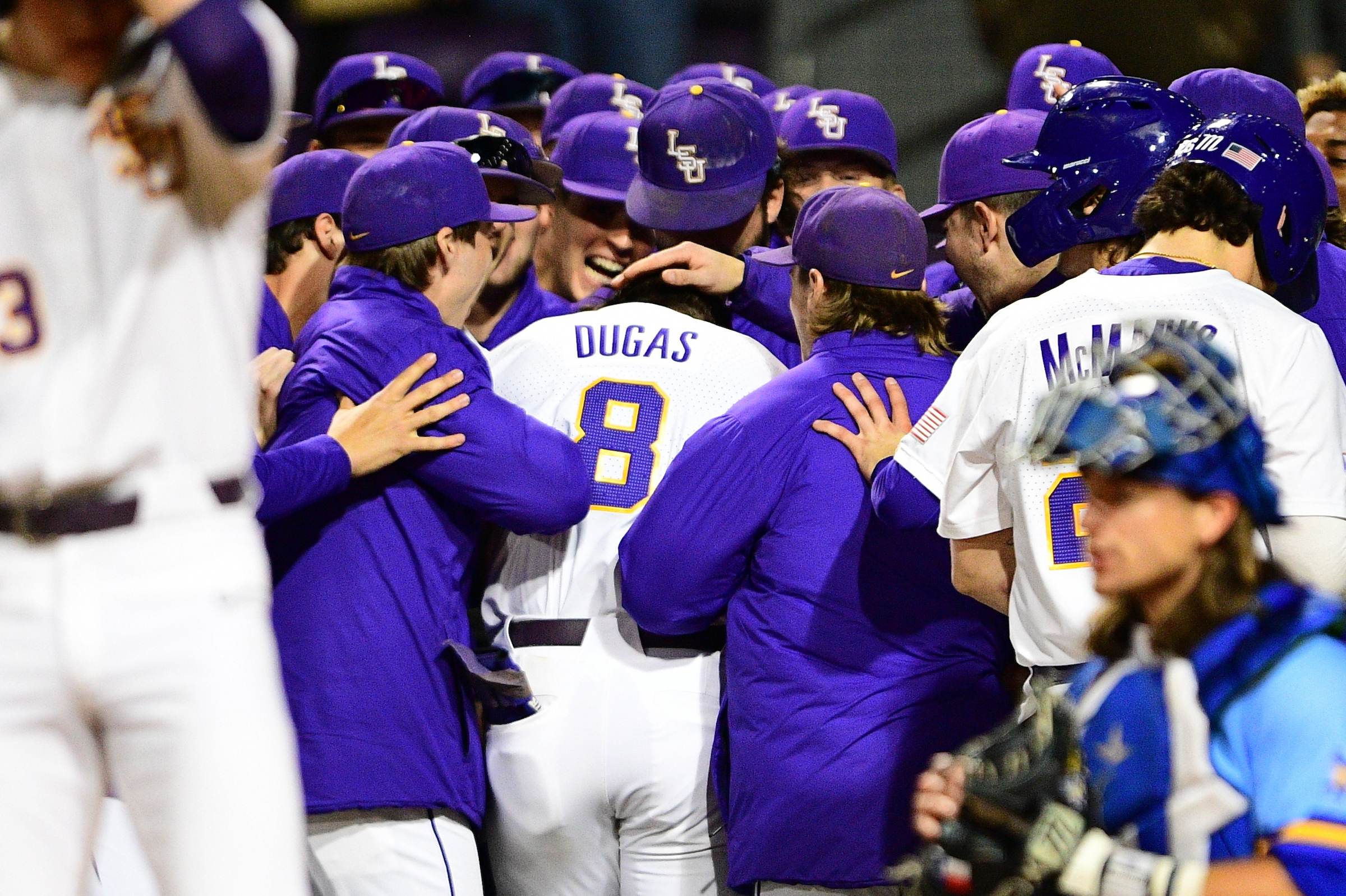
During a recent car ride with his wife earlier this week, LSU baseball coach Paul Mainieri wondered out loud if college baseball will finally get back to normal in 2021 in the COVID-19 world.
“Do you think by this spring we’ll get back to normal?” Mainieri asked. “Have big crowds in Alex Box Stadium? My wife felt really optimistic about it. I feel very optimistic about it.”
By his own admission Mainieri – the nation’s active winningest coach with 1,467 wins – is an ultra-positive person with an infectious, cheerful exuberance.
LSU had its 2020 season reduced to 17 games because of the coronavirus pandemic. Mainieri believes playing the 2021 season beginning Feb. 19 is attainable if a vaccine is produced in time to battle coronavirus.
“My optimism is just based on the hope there’s a vaccine that’s going to be developed and people will use it,” Mainieri said Friday during a Zoom conference with local media. “It’s going to be proven to be very effective and then our fans will feel very safe coming to the games.”
Nothing in his previous 38 years in coaching adequately prepared Mainieri to deal with the ramifications of a 2020 season that was cut short before LSU’s SEC-opening series at Ole Miss on March 13.
The Tigers (12-5) had won nine of their last 11 games, including five straight, with an offensive lineup that was rounding into shape to complement a dominant pitching staff that had limited the opposition to a .186 batting average – the lowest in 24 years.
“It was an awful time for everybody,” Mainieri said of the abrupt end to the season. “I tried to keep everything in perspective. There’s a lot of people in this world (more than 760,000) and in this country (170,000) that have died from this disease. There were a lot of people inflicted with it that are still struggling with it to this day.
“I didn’t spend time worrying about what we lost out on. I was worried about our fellow men, hoping that people were being safe. I was concerned about my own family. All of my focus was getting ready for the 2021 season.”
Those preparations unofficially began on Aug. 2 when LSU’s 23 returning players returned to campus and combined with a week-long quarantine at their respective homes, were in quarantine for another week.
The Tigers’ 17 newcomers, who also previously quarantined for a week at home, arrived in Baton Rouge on Aug. 9 where they’ll quarantine for a week.
That puts into motion a six-week ramp up to the start of fall practice where players will work with LSU baseball’s strength and conditioning coach Travis Roy for two weeks, followed by a two-week period of individual practice and strength and conditioning.
Mainieri said with the help of LSU Senior Associate Athletic Director/Health & Wellness Shelly Mullenix, along with advice from the SEC and NCAA offices, the baseball program has developed a COVID-19 manual with an extensive list of policies and procedures similar to the major leagues which banned high-fives and spitting amongst its players.
“We’re taking care of the players, making them as safe and healthy as possible,” Mainieri said. “We’re making adjustments to how we’re going to operate practices.”
None of the 23 returning players back on campus tested positive for COVID-19 after six players and staff members tested positive while at home during the summer. The 17 first-year players will be tested on Saturday.
“I’ve talked to the ones that have had it and most of them were either asymptomatic or had very light symptoms,” Mainieri said. “It’s not something that we’re taking lightly. We’re going to an extreme in monitoring heartbeats and things like that while they’re actively on the field. I feel very confident that they’re getting the very best medical attention and monitoring from our trainers and physicians. I don’t know that we can be doing anything more than we’re doing to ensure the best opportunity for these kids to be safe.
“Everyone’s being cynical that a bunch of 18 to 22-year-olds are not going to abide by all the restrictions. I have confidence in these kids. I think it matters to them a lot. I think they’re going to follow the guidelines that we give them. It doesn’t mean they may not catch the disease walking through the hallways. Who knows? They all seem committed to doing the right thing.”
Should the entire team progress through the six-week ramp up to the start of fall practice without any interruptions, Mainieri said there will be noticeable adjustments taking place during the fall promoting player safety.
During the team’s scrimmages that will take place in a 27-day span ending Oct. 30, Mainieri said teams for inter-squad matchups will not share the same dugout. Pitchers not involved in the games will sit in the stands where they’ll be socially distant.
“We’re going to operate each day as though we’re going to have a baseball season in the spring that’s going to start on Feb. 19,” said Mainieri, whose team hosts Notre Dame, Air Force and Army in an Armed Forces tribute. “We’re going to play 56 games and at some point, hopefully the gates will be open, and the fans will be able to come to the games. And we’ll be able to travel and do all the things that we normally do.”
Despite his optimism, Mainieri is also a realist in the ongoing task everyone faces in today’s pandemic world.
“Let’s see how fall practice goes,” he said. “If we can get through fall practice without having big setbacks because of the disease, I’ll feel a lot more confident that we can at least play baseball in the spring. Will there be 10,000 people in Alex Box Stadium? Or when we go on the road, will they jam their stadiums to come and see the Tigers play their hometown team?
“I don’t know the answer to that yet. I don’t think anybody really does. We’re talking about six months until college baseball season is supposed to start and hopefully there will be a lot of changes for the better in the next six months.”




Be the first to comment